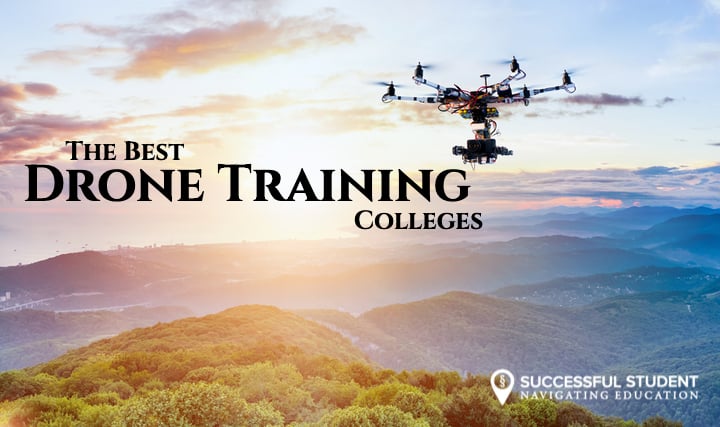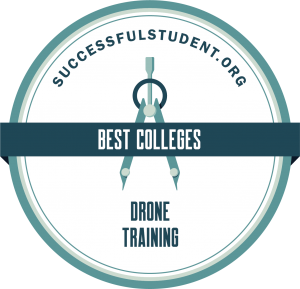This is a ranking of the best colleges that offer drone training, which includes piloting, in the U.S.
This ranking is designed for college students to be informed of college and degree options.
A Drone, also known as an Unmanned Aerial System (UAS) or an Unmanned Aerial Vehicle (UAV), is an unmanned aircraft flown remotely.
These crafts range from small personal aircrafts one person can lift and cost a few hundred dollars, to military surveillance and attack aircrafts that cost over $21 million, can have up to 130 foot wingspan, and can be equipped with missiles.
UAV's should have a very significant commercial and military impact in the coming years, creating more than 100,000 new jobs by 2025, with an economic impact of $82 billion, according to a report by the Association for Unmanned Vehicle Systems International (a group representing 7,500 individual members and 600 corporations).
Colleges across America are meeting the demand for commercial drones by offering certificates, bachelor's, master's, and doctoral degrees on piloting, engineering, and repairing drones. Individuals seeking a drone education college have numerous schools to choose from.
The Best Drone Training Colleges
Factors that were considered in the ranking were academic reputation, hands-on drone training in piloting/engineering, variety of courses, and accreditation. As always at Successful Student, this ranking was considered from the student's point of view. The terms "Drone", "UAV" and "UAS" are used interchangeably.
Embry-Riddle Aeronautical University-Daytona Beach
Daytona Beach, Florida

Through the ROTC program, Embry-Riddle graduates more pilot cadets than any other institution outside military academies. Of its 5,000 students, about a quarter are involved with the ROTC program. Embry-Riddle was the first in the nation to offer post graduate education in drones.
At Embry-Riddle, there are two options for students interested in drones---one to build drones, and one to fly them. The Bachelor of Science in Unmanned Aircraft Systems Science requires completing 122 credit hours, which can be taken over 8 semesters, and students can select the pilot or non-pilot track.
The Master of Science in Unmanned and Autonomous Systems Engineering is an engineering degree in which students study unmanned and autonomous aircrafts, cars, surface and underwater vessels, and industrial robots.
The Master's in Unmanned Systems is a non-engineering degree which concentrates on policy design, ethics, and systems management. The drone school offers classes online and on campus at Daytona Beach, Florida and Prescott, Arizona.
Kent State University at Kent
College of Aeronautics and Engineering
Kent, Ohio

The College of Aeronautics and Engineering at Kent State University has several distinctions to its name. The College holds a unique accreditation from the Aviation Accreditation Board International for its Aeronautics programs, and is home to the Association of Technology Management and Applied Engineering.
Additionally, the College received a research agreement to study unmanned aircraft propulsion scalability in collaboration with the U.S. Army Research Laboratory. The Unmanned Aircraft Systems Minor provides students with a foundation in the roles and applications of unmanned aerial systems.
Students gain an understanding of safety operations, regulations, and unmanned aircraft performance analysis. Students also learn to recognize systems components, effectively use control systems, and implement the necessary communications. The 16 credits of required classes are:
- Introduction to Unmanned AircraftSystems
- Unmanned Aircraft Systems
- Unmanned Aircraft Systems Sensing andSensor Systems
- Unmanned Aircraft Systems Command,Control and Communications
- Unmanned Aircraft Systems FlightOperations Theory
Students must complete several pre-requisite classes before enrolling in classes for the minor. Some of the pre-requisite classes include:
- Elements of Flight Theory
- Elements of Aviation Weather
- Fundamentals of Air Traffic ControlLaboratory
- Applied Flight Dynamics
Oklahoma State University-Main Campus
Stillwater, Oklahoma

Known as America's Healthiest Campus, Oklahoma State was also the first University to offer a concentration in Unmanned Aircraft Systems (UAS) at the graduate level. Students may choose between the Master of Science or PhD in Mechanical and Aerospace Engineering.
Applicants at the Master's level are required to have a Bachelor's degree in Engineering, and PhD applicants must have a Master's degree. The curriculum covers design, construction, and test flights for UAS's. Test flights are performed at a dedicated UAS facility that includes an aircraft hangar, control room, 2 runways, and a 1 mile/1 mile flight area of open land.
Over 200 custom aircrafts have been launched at this facility, including a few world records. Students may also have the opportunity to work with the University Multispectral Laboratories at Ft. Sill, OK, giving them unique access to restricted airspace.
Research opportunities are abundant through the UAS program, which covers a wide area of topics, including: UAS structure and design, flight path management, communications and operations, and aerodynamics.
Liberty University
Lynchburg, Virginia

Liberty University is one of the most well known Christian Universities that provides largely online education. Students can pursue flight training with the convenience of flexible online courses.
The Unmanned Aerial Systems is a hybrid program with both online and on campus required work and is offered at the Bachelor's level.
Students will learn to construct and operate the two most common control systems for UAS's, and will receive Dragon Eye UAS certification (which is based on a Department of Defense training program for Marines).
Students will use flight simulators as part of their training in addition to test flights within Liberty University airspace. Courses will cover topics such as Military Intelligence and Information Security.
Get InformationPurdue University-Main Campus
West Lafayette, Indiana
Purdue Polytechnic offers undergraduate and graduate level studies in six major subject areas: Aviation, Computing, Construction, Engineering Technologies, Technology Education, and Technology Management. From these six subject areas Purdue Polytechnic maintains 68 academic programs.
Purdue Polytechnic also offers an ROTC program through its Division of Military Science and Technology. The Bachelor's in Unmanned Aerial Systems gives students the opportunity to study aviation at the nations first university-owned airport.
This means students have ample hands-on experience throughout the program. In addition to flying aircraft, students collect data for research, develop teamwork skills, and consistently network with industry leaders. A selection of core courses includes:
- Aviation Business
- Unmanned Aerial Systems Design and Construction
- Aviation Operations Management
- National Airspace Systems Operations
- Unmanned Aerial Systems Design, Build, Test
- Civilian Unmanned Aerial Systems
Students complete the degree with a comprehensive Unmanned Aerial Systems Capstone course.
Indiana State University
Terre Haute, Indiana
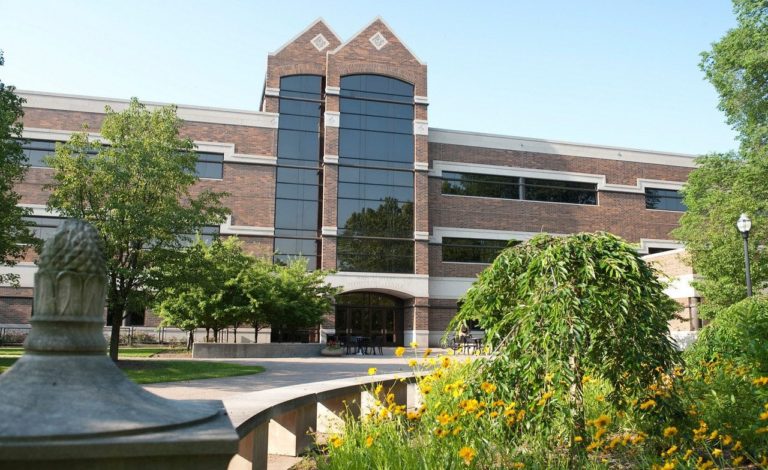
Indiana State University was established in 1865 and has grown with the times, with now over 100 majors and state-of-the-art technology. In 2013 their Center for Unmanned Systems and Human Capital Development was created. Indiana State offers a Bachelor of Science in Unmanned Systems and a Minor in Unmanned Systems.
This program provides education in using air, land, and marine vehicles. 49 credits are required for the major: 21 credits in Unmanned Systems Core Courses, and 28 credits in Aviation Department Core Courses. Classes include:
- The Mechanics of Unmanned Systems
- Principles of Flight for Non-Aviation Majors
- Private Pilot Theory
- Advanced Unmanned Aerial Systems Operations
- Payloads and Sensors
- Aviation Safety Management Systems
- Air Traffic Control Systems
Students are instructed in the theory, functions, and regulations regarding UAS's.
Kansas State University
Manhattan, Kansas
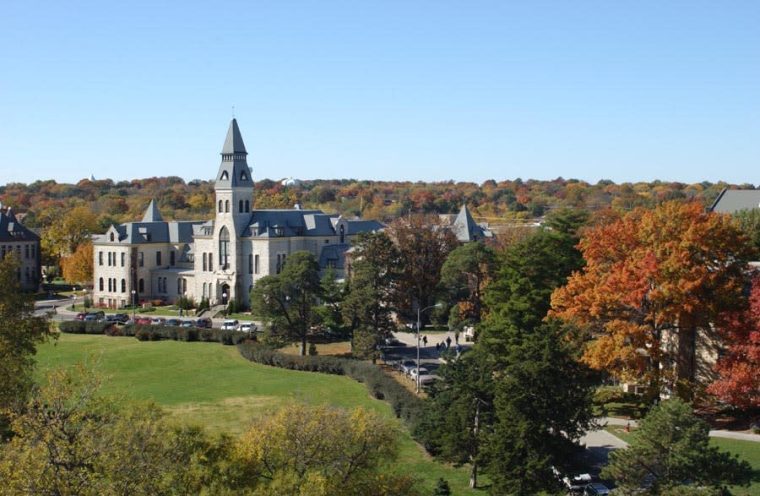
KSU may be a small campus University, but it is well known for its elite aviation program. There are more Master Certified Flight Instructors at Kansas State than any other University.
The school is ideally located directly across from a 12,000-foot runway. Being so dedicated to aviation, KSU offers a full 4 year Bachelor's degree in Unmanned Aircraft Systems.
Students will learn basic theory and assembly through test flying their own UAS's. The degree requires 127 credit hours for completion. Unique to KSU's program is the option for students to participate in real missions lead by the Department of Defense. This allows students access to restricted airspace at the Smoky Hill Weapons Range and the National Airspace System.
Research opportunities for students include the evaluation of Federal Aviation Administration standards for aircraft of less than 55 lbs and power infrastructure inspection.
The fleet at KSU has a variety of crafts with different features such as fixed-wing and rotary-wing, gas motor and electric motor, and numerous data collection methods (infrared, thermal, and electro-optical).
University of North Dakota
Grand Forks, North Dakota
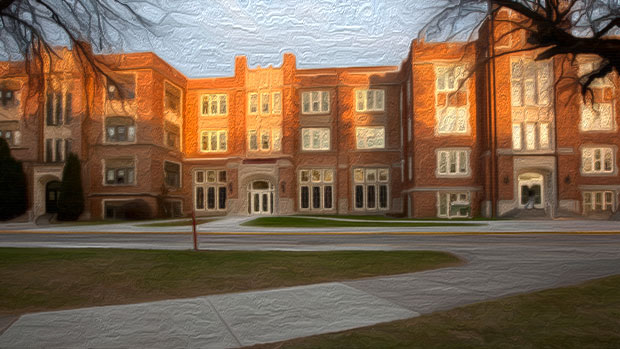
As the state's oldest and largest University, UND offers more educational programs than any other in North Dakota.
A Bachelor of Science in Aeronautics with a Major in Unmanned Aircraft Systems Operations is just one of many intriguing options for students. UND has over 40 years experience in aviation education and can offer state of the art technology and access to restricted airspace over Camp Grafton South Training Area, R5401.
Thanks to a low population density, over 13,000 square miles of airspace is available for test flights and operations. A total of 125 credit hours are required to complete this program, which includes the core curriculum. Some of the Aviation courses include:
- Aviation Safety
- Flight Physiology
- Ground and Sensor Systems
- Advanced Aerodynamics
Prior to enrollment, students must provide proof of USA citizenship for some of the higher level courses, without exception. Minors in Professional Flight, Aviation Management, and Business Aviation are also excellent options for students.
South Dakota State University
Brookings, South Dakota
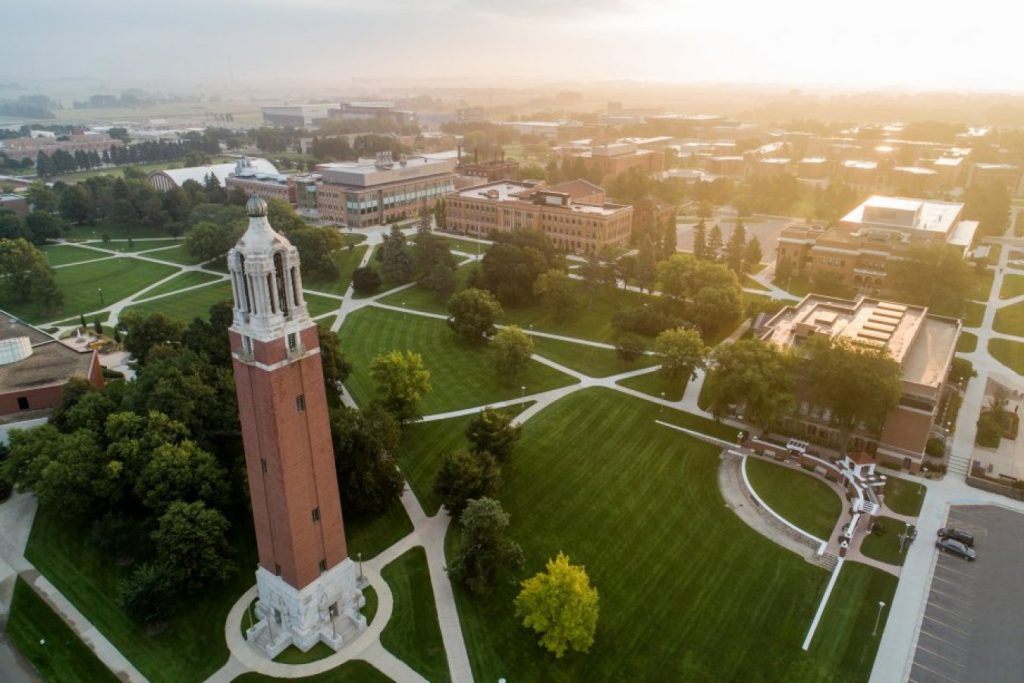
South Dakota State University's Department of Geography offers bachelor's and master's degrees as well as a variety of certificates and minors. The department emphasizes laboratory research, fieldwork, and travel as a necessary part of a comprehensive curriculum for all its programs.
Faculty of the department specialize in geographic information and remote sensing research. The Unmanned Aircraft Certificate prepares students for the Federal Aviation Association (FAA) Part 107 small Unmanned Aircraft Systems license. Students must complete three core courses and one elective for a total of 12 credits.
The core courses are Aviation Safety, Introduction to Small Unmanned Aircraft Systems, and Aerial Remote Sensing and Lab. Professors deliver information in the form of class lectures, laboratory research, fieldwork, and a small amount of online course work.
Students graduate from the program with knowledge of unmanned aircraft system designs, laws and ethical considerations, how to gather and process information, and identify uses and limitations of the aircraft.
Green River College
Auburn, Washington
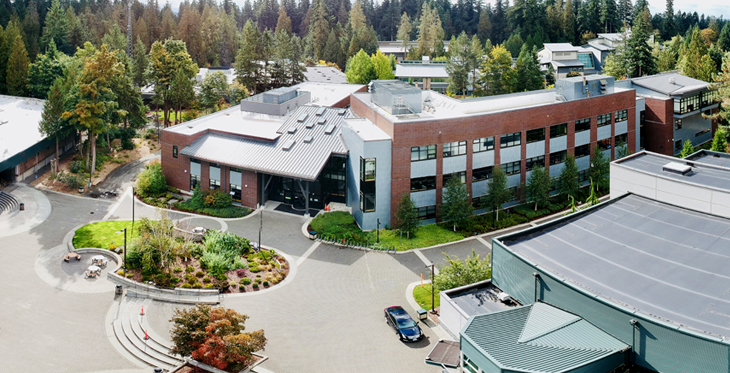
The Aviation Technology division of Green River College offers mainly Associates or Certificate programs and one Bachelor of Applied Science in Aeronautical Science degree. The Federal Aviation Association chose the Aviation division at Green River College for the Collegiate Training Initiative Program.
Students in the Associate of Applied Science Unmanned Aerial Systems program must complete a total of 90 course credits.
The curriculum includes operational requirements, licensing issues, commercial uses, various flying skills and techniques such as photography and surveying, component integration, and how to build unmanned aerial systems. Some of the required core courses are:
- Private Pilot Flight Simulations
- Aviation History and Careers
- Private Pilot Ground School
- Aviation Weather
- Aerodynamics for Pilots
- Aviation Safety and Human Factors
- Air Traffic Control Fundamentals
The Unmanned Aerial Systems Basic Operator Certificate also follows the Federal Aviation Administration guidelines. Students must complete a total of 16 credits. The curriculum requires the following courses:
- Private Pilot Ground School
- Drone Operations
- Introduction to UAS
- Computer Applications Overview
LeTourneau University
College of Aviation and Aeronautical Science
Longview, Texas

The College of Aviation and Aeronautical Science at LeTourneau University is the only higher-level education institution of its kind in the state of Texas. Started in 1956, theCollege now offers 17 Bachelor's and Associate level programs, as well as further training and fast-track flight options for alumni.
The field experienced professors teach in classrooms, labs, and training facilities. The Bachelor of Science in Remotely Piloted Aircraft Systems degree combines technical training and theoretical knowledge with the Christian perspective upheld by the University.
There are three concentrations available:Electronics, Technician, or Pilot. Students must complete 126 to 132 credits depending on the chosen concentration. Core classes may include:
- Introduction to Remotely PilotedAircraft Systems
- Remotely Piloted Aircraft Operations
- Remotely Piloted Aircraft FlightControl Systems
- Aviation Safety Factors
Alumni of the program hold successful positions in companies such as Textron Systems, Neany Inc., and UAV Aviation Services.
Lewis University
Romeoville, Illinois

As relatively young University, founded in 1932, Lewis University has had a special interest in the area of aviation from the beginning. Though it has a strong Catholic and Lasallian heritage, all students are welcomed and encouraged by accomplished professors within their respective fields.
The Unmanned Aircraft Systems Bachelor of Science degree has been consistently ranked in the top programs. The University has the added benefit of an on-site airport for operations and test flights and boasts of the most modern, hi-tech aviation education centers in the country.
Students anticipate the Senior Capstone project of designing and testing their own UAS. Upon graduation, students will have earned their Private and Commercial Pilot Certificate's for single engine lands. A total of 128 credit hours are required for graduation, including core requirements.
80 of these credits will be directly related to the UAS degree. The ethical concerns for drones are heavily emphasized given the conservative values of the school. As a minor, only 22 credit hours will be related to UAS study, as the program is meant to be only a basic introduction. Some background in the field of aviation is required to be admitted to the minor program at the drone school.
Troy University
Troy, Alabama

Troy University was initially founded in 1887 under the name Troy State Normal School as an institution for educating teachers. Today Troy University offers a variety of courses through 5 different colleges plus a graduate level school.
Troy offers a minor to students in unmanned aerial systems as part of the Bachelor of Applied Science in Resource and Technology Management - Aviation Ops.
The full Bachelor's degree requires 60 hours course credits, not including general education requirements, in addition to 5 elective credit hours. The emphasis in unmanned aerial systems will require an additional 18 hours course credit. Classes for UASs include:
- Principles of Design
- Human Factors: Operation and Accidents
- Ethical Considerations for UAS Operations
Many other options are also available to students within the subject of aviation.
University of Louisiana at Monroe
Monroe, Louisianna

Aviation as a degree has been offered at the University of Louisiana since 1939 when it joined universities around the country to help train pilots for WWII. Since then, the aviation degree has grown significantly to include a broad range of knowledge in the field.
Unmanned Aircraft Systems have become a part of that program since the fall of 2013. Students have the option of pursuing a Bachelor of Science degree in Aviation with a Concentration in Unmanned Aircraft Systems. A post-baccalaureate Certificate in UAS is also available.
Courses will cover UAS technology and application. Many within the field are anticipating the benefit UAS's will have to the area of agriculture. Students will be required to demonstrate mastery of material by creating appropriate flight plans for a UAS.
All students within this program are also encouraged to take business courses. Those who major in Aviation are required to complete at least 15 credit hours of business classes and to minor in business.
Northwestern Michigan College
Traverse City, Michigan
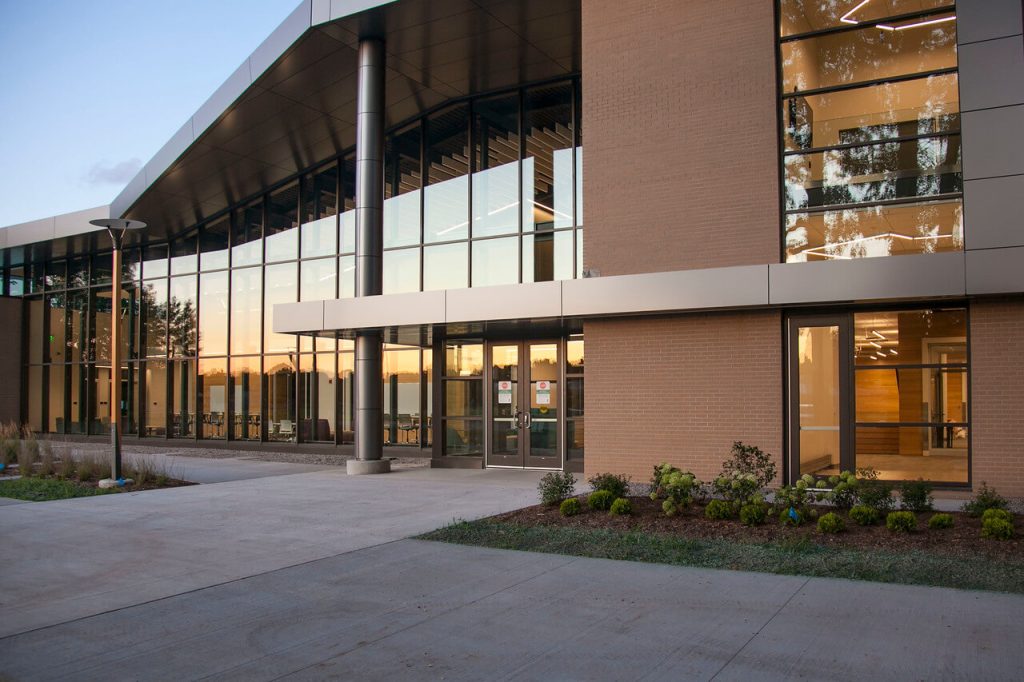
Home to Dennos Museum Center, Lobdell's Teaching Restaurant, and Roger's Observatory, Northwestern Michigan College has many exciting opportunities for students. Northwestern Michigan College, one of the best drone education colleges, offers an Unmanned Aerial Systems (UAS) operator training program.
A minimum of 64 credit hours are required for an Associate in Applied Science Degree within Aviation. For specialized training in UAS's, a basic knowledge of Aviation is strongly encouraged. Students will receive frequent hands-on training in a variety of UAS technology, including advanced commercial-grade equipment.
Students may also further specialize in Engineering Technology which will further detail the programming basics, electronics, hydraulics, and robotics of UAS's. The college is excited to be assisting the FAA draft operator guidelines for drones and is anticipating great progress in the future.
University of Nevada-Reno
Reno, Nevada

The Minor degree program in Unmanned Autonomous Systems through the College of Engineering is available to students who are enrolled in the Computer Science and Engineering program, the Electrical and Biomedical Engineering program, or the Mechanical Engineering program.
A minimum of 18 credits are required for the minor, with no more than 9 of those credits overlapping with the chosen major. The Nevada Advanced Autonomous Systems Innovation Center website is a great location for further information on research opportunities, educational outreach, and labs and centers.
Middle Tennessee State University
Murfreesboro, Tennessee

Middle Tennessee State University has made a significant investment in its science program with the new 250,000-square-foot, $147 million Science Building. Students can expect state-of-the-art technology and frequent hands-on experiential learning.
As of the fall of 2015 students will be able to receive a Bachelor's Degree in Aerospace with a concentration in Unmanned Aircraft Systems Operations. MTSU recently purchased 25 planes for the Aerospace department with the most updated technology for students to master.
The NASA funded FOCUS lab is another excellent resource for students within this field. In addition to core Aerospace courses, the UAS concentration includes constructing and operating a UAS, manned pilot training, and partnership opportunities with participating industries. Many classes in UAS were offered in 2014 as well, but only as electives.
Aims Community College
Greeley, Colorado
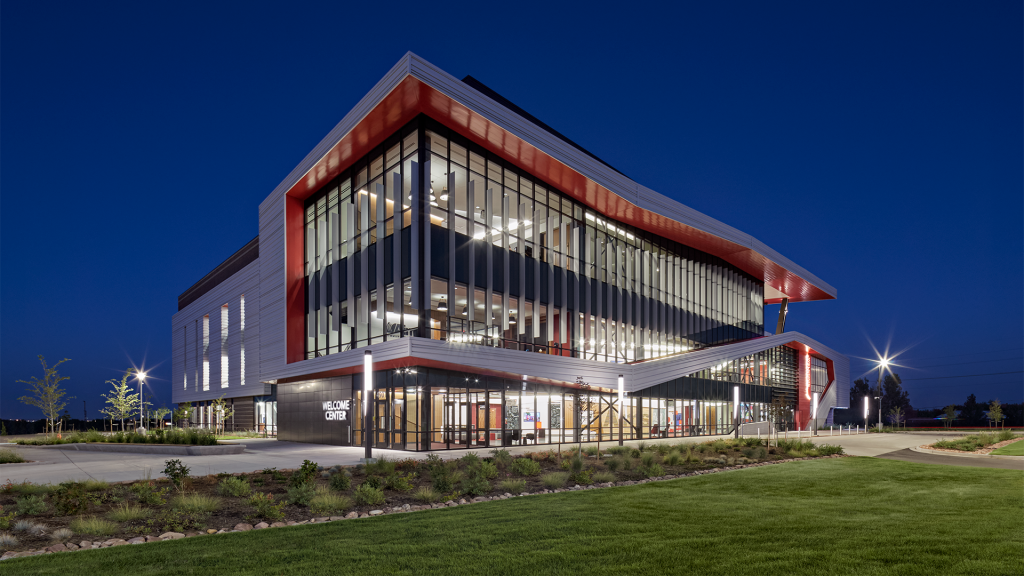
Aims Community College offers an Associate's degree in Unmanned Aircraft Systems (UAS) Sciences, and a Certificate in UAS Sciences.
The Associate's in UAS Sciences teaches students best practices for fixed and rotary wing drone operations. Instruction includes data collection and management, and operating Beyond Visual Line of Sight (BVLOS). One very exciting and unique aspect of this program is that students learn how to design and engineer their own drones, which further facilitates hands-on understanding of how drones work and operate.
The associate's degree prepares students to take the FAA Part 107 Small Unmanned Aerial Systems certification exam. Passing the exam earns students the Part 107 Remote Pilot Certificate.
Another benefit of the program is that students can participate in the Aims UAS Operations team, which is a work-study and paid internship where students work within the industry, which can be an excellent way to build a resume.
Spartan College of Aeronautics and Technology
Broomfield, Colorado
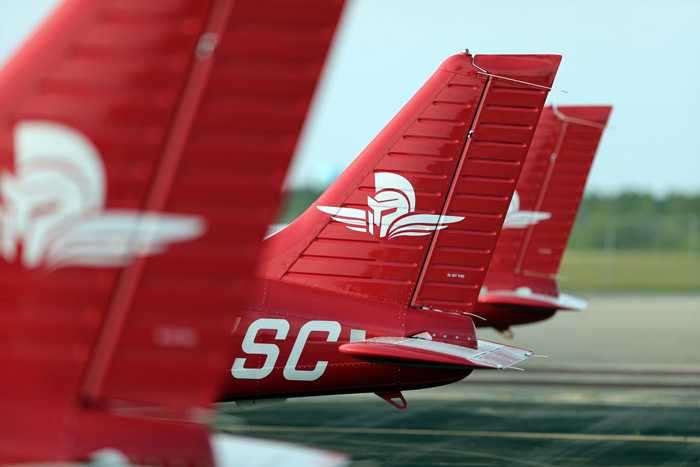
Though also a relatively young school, founded in 1928, the Spartan College of Aeronautics and Technology's main focus has been to train successful pilots. Many of the instructors have been recognized as the best in the country and provide experienced based, hands-on education.
The certification for a professional pilot's license can be completed in as little as one year. Over 90,000 pilots and technicians have already been trained through Spartan college, and are highly sought after in the professional field. Diploma, associate and bachelor's degree programs are available to students, including the newest Unmanned Aircraft Systems classes.
Many classes have a unique focus on the electronic systems of the UAS's. The Aviation Electronics Technology Associate's degree can be completed in 16 months and covers both traditional aircraft and unmanned aerial vehicles. Students will be required to assemble and program their own UAS, electronic trainer, and FM receiver.
Monroe Community College
Rochester, New York
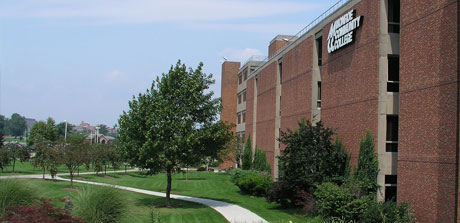
Training Certificate is awarded after completing six 3-hour sessions. Monroe was the first school in New York educating pilots and technicians to operate small unmanned aerial vehicles (drones small enough to be lifted by one person). Students at this drone school train using Syma X5C Quadcopters, AeroSIM flight simulators, DJI Phantoms, 3DRobotics and custom hexi-copters with dual radio controls and first person video.
Training will include learning to apply multi-rotors, fixed wing and autonomous flight systems, practice flying with a computer simulator, and hands-on models and multi-rotor drones. The class addresses current FAA rules and regulations, plus operational risk and safety issues.
Mohawk Valley Community College
Utica, New York
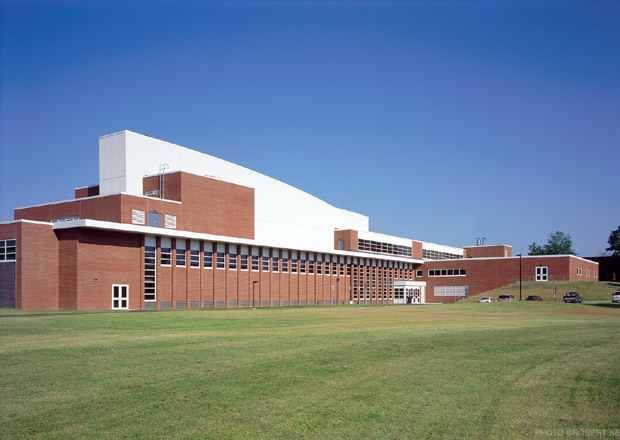
Mohawk Valley Community College (MVCC) is one of the larger 2 year community colleges in the Utica area. The college offers a non-credit training program for Unmanned Aerial Systems. A wide variety of basic topics are covered, including different flight systems.
Each student receives a small quadcopter and flight simulator software to practice with during and after the completion of the program. In the spring of 2015 classes were held on Saturdays from 9am-4pm. The cost of the class includes the quadcopter, software, and radio controller.
Drone Training: Potential Career Opportunities
Career opportunities for students with drone training include:
- military drone pilot
- firefighter
- disaster relief
- search and rescue
- law enforcement
- oil and gas operations
- seismic studies
- border patrol
- traffic reporting
- storm chasing
- agriculture
- package delivery
- forestry
- engineering
- computer science
- commercial contractors
- film
Companies that hire drone engineers and pilots include aerospace and defense companies Northrop Grumman and Lockheed Martin, and aircraft manufacturer Boeing. NASA is currently working on an air traffic control system for drones, and online retail giant Amazon is ready to deliver packages via drones. Drone training colleges are meeting the demand offering these specialized degrees across the US.
Drone Operating Guidelines
The FAA has guidelines for commercial use of drones. The rules apply to drones weighing less than 55 pounds. These rules specify operations below 400 feet (unless within 400 feet of a structure), within the line-of-sight of the operator, and during daylight hours and twilight (30 minutes before sunrise and 30 minutes after sunset, with unit-collision lighting), and a maximum groundspeed of 100 mph.
The FAA requires a certificate for operations:
"A person operating a small UAS must either hold a remote pilot airman certificate with a small UAS rating or be under the direct supervision of a person who does hold a remote pilot certificate (remote pilot in command)."
FAA
- The Best Artificial Intelligence Colleges | AI Degrees and Certificates
- The Best Robotics Programs in College
- The Best Online Bachelor's Degrees in Aviation
- The Best Online Degrees To Get For Careers
- The Best STEM Degrees for Careers of the Future

